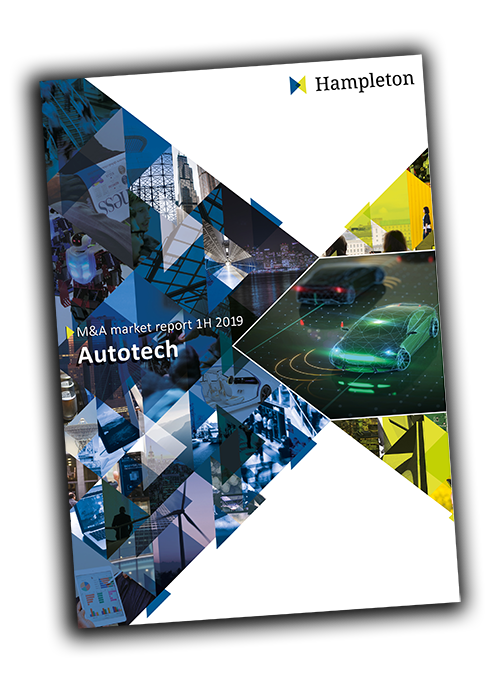Why Car Ownership Is NOT Under Threat - Yet
Media hype and the bullish attitude of Silicon Valley tech giants might have you believe that no one wants to own a car anymore. Admittedly, some statistics might support this view: for example, in 2018, new car sales in the UK were down 6.8% year-on-year, while in Germany the number of young people learning to drive has fallen by 28% over the last decade.
For some people, then, owning a car is not an efficient use of time and money. In addition, as automotive technology continues to innovate, the allure of owning a car will only decrease, so the saying goes.
There are numerous reasons why the need to own a car is diminishing:
- Ride-hailing and car-sharing apps make it easy to get a ride whenever you need one, on a pay-as-you-go basis.
- Owning a car is expensive for many. Aside from the vehicle cost, drivers must pay for insurance, fuel, maintenance, tolls and more.
- Driving can be a negative experience – particularly in cities where gridlocked roads, inconsiderate drivers and limited parking make for a stressful backdrop.
- Petrol and diesel cars are harmful to the environment. Governments across the world are working on ways to restrict pollution of this kind, including banning petrol and diesel engines altogether.
- Many cities across the globe offer excellent public transport options.
In fact, to insure themselves against the rise of new tech-based competition, established names in the auto industry have been investing in ride-hailing and car sharing services. For instance, in the last two years, Daimler has purchased six companies in the autotech sector, including Transpoco and Flinc GbmH – two ride-sharing mobile apps.
However, car ownership is still not about to become a thing of the past.
‘OEMs are fiercely pursuing mobility solutions to hedge against an uncertain future of personal vehicle ownership, including ride-sharing apps.’

Convenience and control
Owning a car is wasteful. On average, cars are stationary 95% of the time. For the other 5% of the time, the car owner has complete control over their journey. If a car owner wants to go somewhere, they can, immediately – a level of convenience the best ride-hailing services are unable to offer.
In the US, the average household makes 10 car journeys every day. Given that the
average waiting time for an Uber or Lyft is around 9 minutes, if the average American family swapped their car in favour of ride-hailing, they would spend 90 minutes of every day waiting. This is as wasteful as having a car parked for 95% of the day.
Can the ride-hailing industry truly persuade the average family to take an Uber to the convenience store, or a Lyft for the school run? For longer journeys, will people go through the time-consuming process of hiring a car or finding a car-sharing vehicle instead of driving their own vehicle? It can happen, but it will take time and effort.
Is the world ready for autonomous vehicles?
Silicon Valley’s main argument against car ownership is that the next generation of vehicles is on the horizon. Electric, self-driving cars that connect to the outside world, transporting us quickly and safely to our destination, will soon be here. Private companies will provide them for us, eliminating the need to own a car.
Progress in this area is well underway. Tech giants such as Tesla, Google and Apple are inventing, testing and improving their autonomous vehicles. OEMs such as Ford are investing in autonomous technology. Meanwhile, cities such as San Francisco and Dubai are investing in connected infrastructure to facilitate self-driving cars.
‘Continued push by suppliers and OEMs to buy and own the foundation blocks of autonomous and connected vehicle technology.’
However, the journey from driving ourselves to letting a machine do this for us will not be a smooth one. Safety is paramount and there is a long way to go before the legal ramifications are agreed and implemented.
A huge impediment to autonomous vehicles achieving critical mass is the attitude of the average driver, who – unlike trailblazers and tech enthusiasts – are often reluctant to travel in autonomous cars. In a 2018 survey in the US, only 17% of those surveyed said they found the prospect of autonomous journeys appealing, even if there was an element of human control. 49% said they would never buy an autonomous vehicle. For the time being, these numbers are a significant obstacle in the way of autonomous driving becoming an established feature of consumer car ownership.
OEMs still backing car ownership
Over the last year, many established names in the automotive industry, including OEMs, have purchased companies that cater for people who still want to own cars. For example, In November 2018, Renault purchased Carizy, a French used-vehicle marketplace start-up
In addition, there has been a great deal of consolidation in the online car sales arena, with e-commerce behemoth eBay purchasing motors.co.uk from Cox Automotive. Another important deal was Cars.com purchasing Dealer Inspire, the automotive advertising SaaS and service provider for $165 million.
Autotech M&A opportunities
In the medium-term, it’s likely that we’ll see room on the roads for personal, public and shared autonomous and electric vehicle transportation, resulting in reduced levels of pollution, congestion and hopefully, road rage.
In the longer-term, car ownership may decline as ride-hailing, car-sharing and autonomous vehicles become more common. It is the reason why vehicle manufacturers are investing in autotech startups, to help diversify and protect themselves against an uncertain future. Such deals in 2018 included Volkswagen purchasing WirelessCar, the former connectivity technology division of Volvo, for $121 million, almost three times revenue.
Hampleton’s latest Automotive Technology M&A Market Report revealed that disclosed Venture Capital funding to automotive start-ups totalled $8 billion in 2018. That is in addition to the almost 100 M&A deals which were signed, for a wide variety of companies: from connected car technology through to fleet management software.
For Hampleton’s analysis of key Automotive M&A trends, deal volumes and valuations, please download our most recent Autotech report here: https://www.hampletonpartners.com/reports/autotech-report/.


